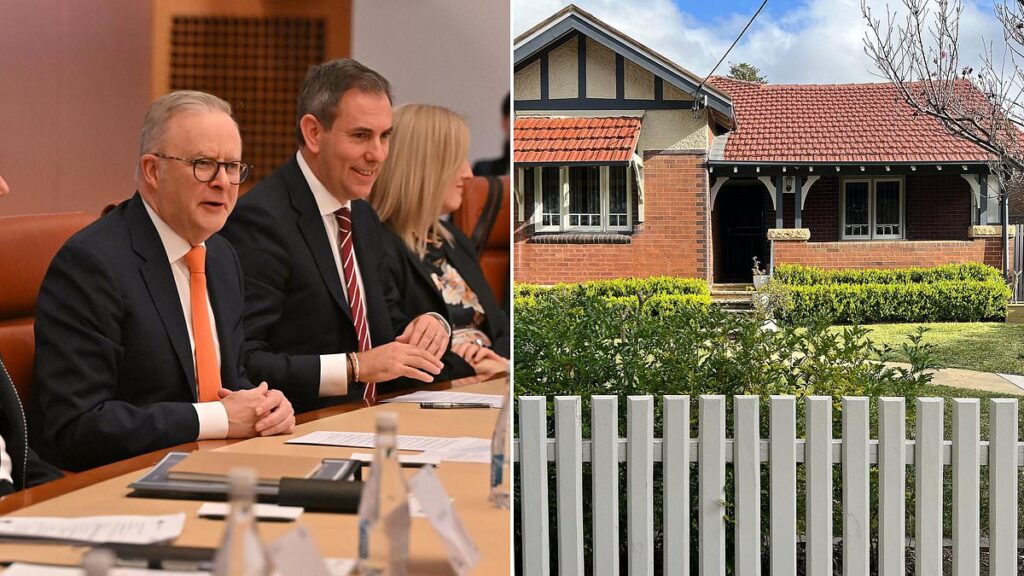
A left-leaning think tank has urged the Albanese government to consider implementing a two percent “wealth tax” on Australians with assets exceeding $5 million. This proposal, part of a submission to the government’s three-day Economic Reform Roundtable, comes from the Australia Institute, which has outlined three “simple” tax reforms aimed at strengthening the nation’s finances.
The wealth tax alone, excluding superannuation and the family home, is projected to generate more than $41 billion annually. The think tank also advocates for the revival of the inheritance tax, abolished federally in 1979, and the elimination of the 50 percent capital gains tax (CGT) discount, which was introduced in 1999.
Proposed Tax Reforms and Economic Implications
Labor’s previous attempts to reduce the capital gains tax discount to 25 percent contributed to their electoral defeats in 2016 and 2019. Anthony Albanese, while in opposition, abandoned these plans, leaving the Greens to champion the abolition of the CGT discount for future investors. Currently, Australian landlords benefit from a 50 percent CGT discount when selling an investment property held for at least 12 months. For instance, if a property’s value increases by $100,000, only $50,000 is added to the seller’s taxable income.
This policy, introduced under John Howard’s Coalition government 26 years ago, has been linked to a significant surge in property prices, outstripping wage growth. An average full-time worker earning $104,520 annually struggles to afford a typical capital city house priced over $1 million, as banks are hesitant to lend more than six times a borrower’s salary. This has led to an influx of investors leveraging their existing properties to capitalize on capital growth.
Economic and Social Impact
The Australia Institute’s report suggests that reviving an inheritance tax and eliminating the capital gains tax discount could raise an additional $10 billion and $19 billion respectively. Combined with the wealth tax, these measures could generate a total of $70 billion. The think tank argues that this revenue could fund essential services such as education, healthcare, and welfare.
Matt Grudnoff, senior economist at the Australia Institute, stated, “Australia is a low-tax country that does not do a good job of taxing wealth. Correcting this would raise huge amounts of extra revenue for essential services and ease growing inequality in Australia.”
Grudnoff emphasized that these proposals are not radical, noting that countries like the UK, US, and Japan have inheritance taxes. He added, “Even if you were to exempt the family home and superannuation, a two percent wealth tax on people worth $5 million would raise $41 billion per year.”
Criticism and Alternative Views
However, not everyone agrees with these proposals. AMP chief economist Shane Oliver warned that such reforms could harm the economy. “Tax the rich sounds fine in theory, but all of those reforms will further increase the tax on high-income earners,” he told news.com.au. Oliver highlighted that the top 10 percent of income earners in Australia already pay nearly 50 percent of income tax.
“You might help the budget initially but you’ll damage the economy long-term because there’ll be less work incentive,” Oliver cautioned. “Wealth tax I think is incredibly dangerous. You want Australians to feel confident to go out and start businesses and build up their wealth – that’s how we get ahead.”
Meanwhile, university economists Peter Siminski from the University of Technology, Sydney, and Roger Wilkins from the University of Melbourne, have suggested taxing capital gains on the family home to address the housing crisis. They argue that the current exemption favors the wealthy and deprives the government of crucial revenue. However, neither major political parties nor the Greens have proposed a capital gains tax on the family home or a revival of inheritance taxes in recent elections.
Looking Ahead
The debate over tax reform in Australia highlights the ongoing struggle to balance economic growth with social equity. As the government considers these proposals, the potential impacts on the housing market, wealth distribution, and overall economic health will be closely scrutinized. Whether these reforms will gain traction remains to be seen, but the conversation underscores the complexities of fiscal policy in addressing both immediate and long-term challenges.






